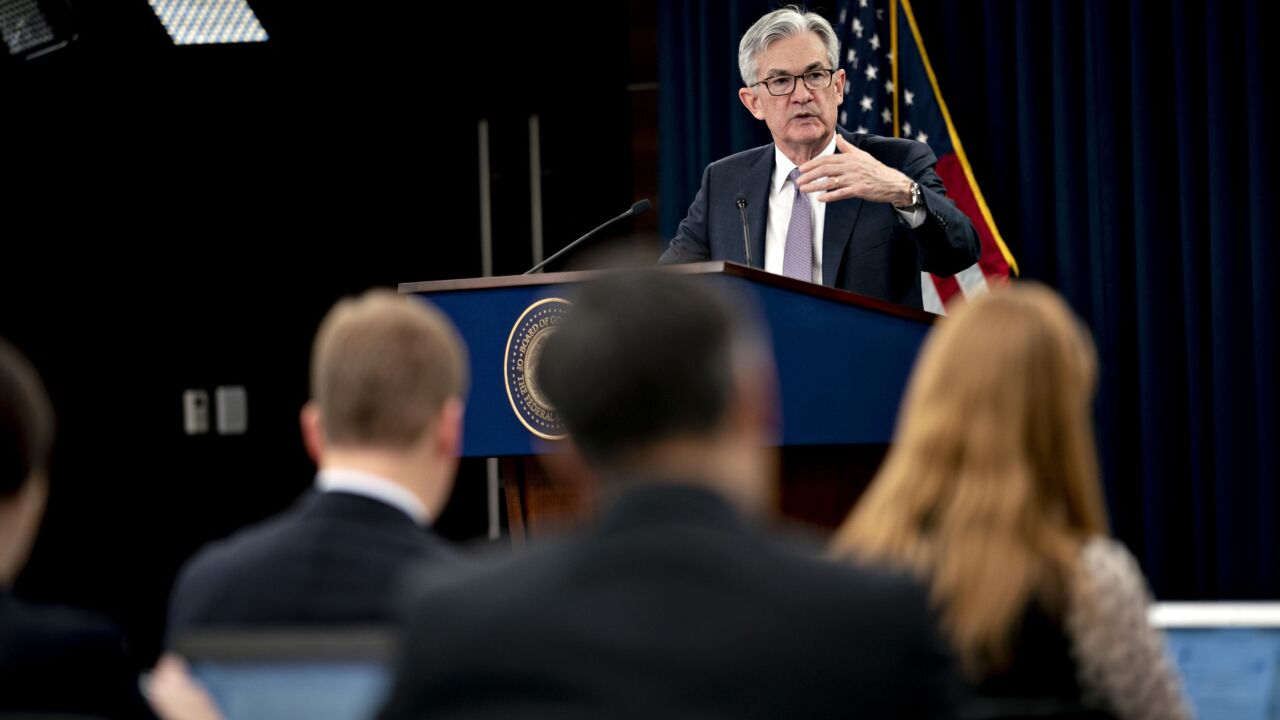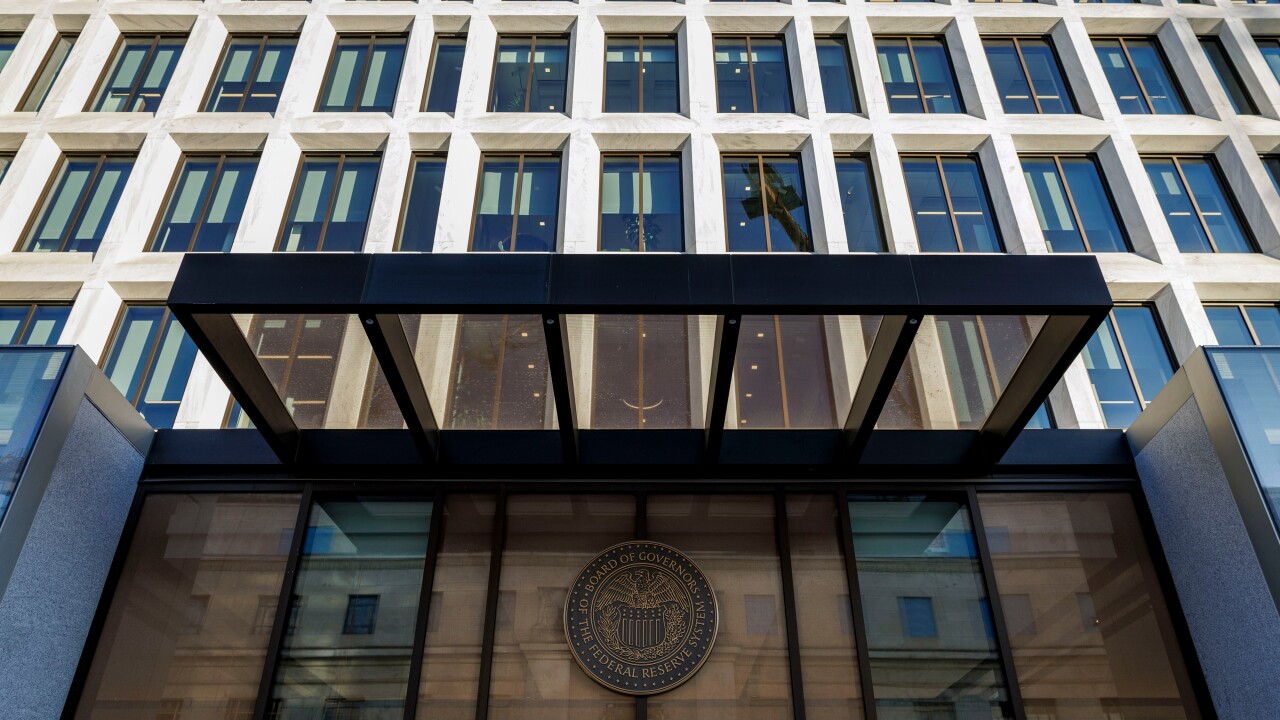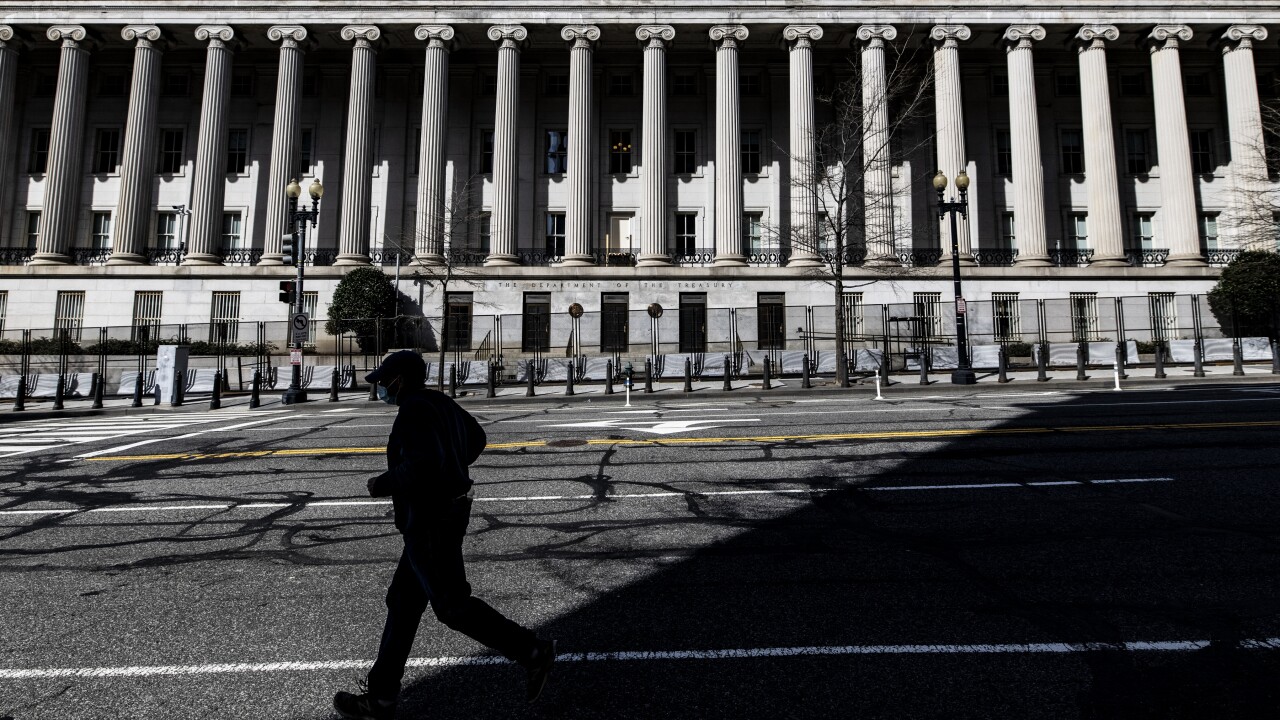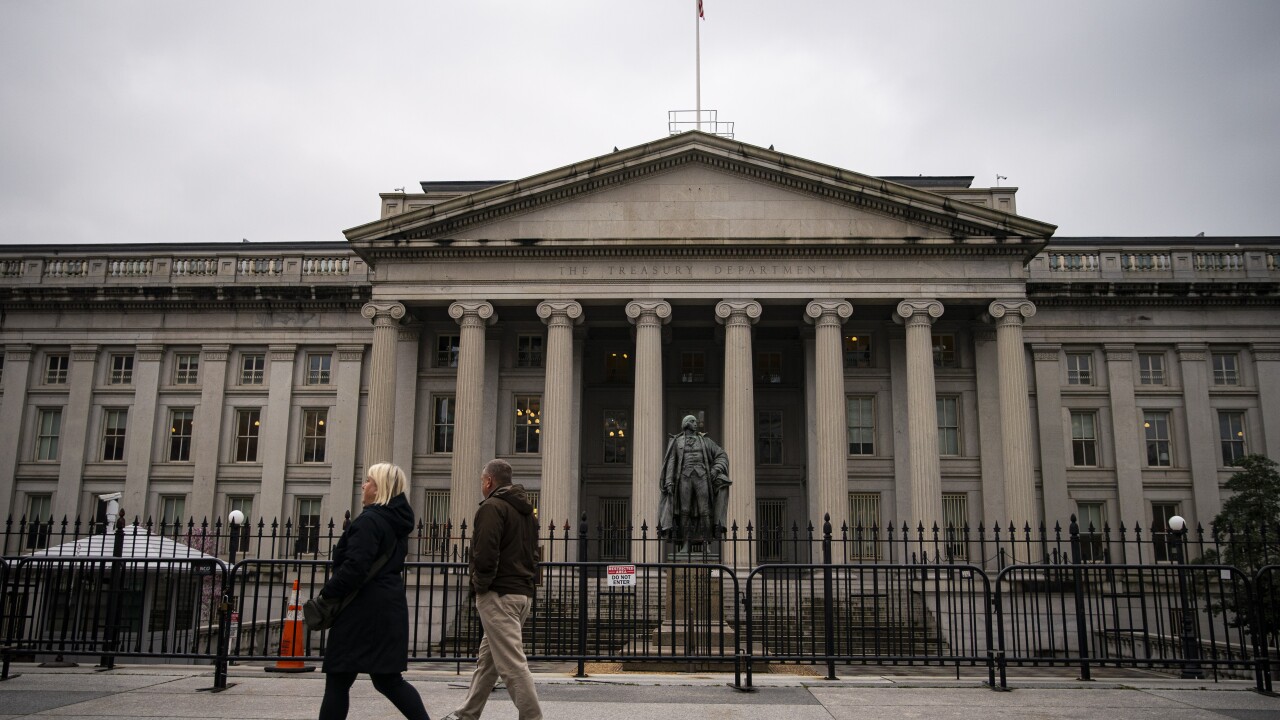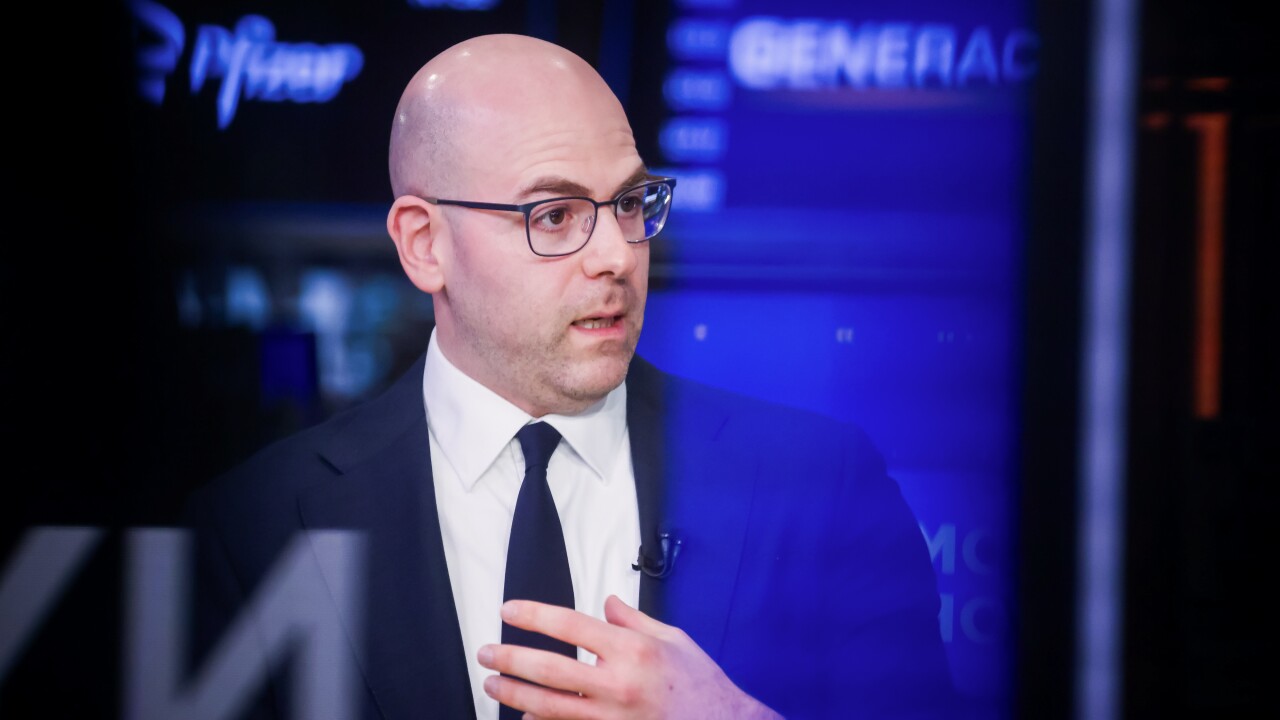Federal Reserve
Federal Reserve
-
Kansas City Federal Reserve President Jeffrey Schmid and Chicago Fed President Austan Goolsbee said in statements Friday that their dissents from this week's interest rate decision were spurred by inflation concerns and a lack of sufficient economic data.
December 12 -
Yields on US 10-year debt were little changed at 4.14%. Two-year peers were also steady after tumbling the most in two months as the Fed lowered interest rates.
December 11 -
Fed Chair Jerome Powell, speaking at a press conference after the December FOMC meeting, said the central bank is holding interest rates steady until it gets more clarity on the economy.
December 10 -
A dayslong slump in US government bonds has curbed risk appetite as traders grow cautious about the pace of monetary easing beyond Wednesday's meeting.
December 9 -
Aside from employment numbers that are still fluctuating, year-over-year inflation rates could remain persistent, sending Fed base rates north of 3%.
December 9 -
Federal Reserve watchers expect a board of governors vote in February to reappoint the 12 regional Fed bank presidents — which is typically treated as a formality — to be the next flashpoint in the White House's effort to bring the central bank to heel.
December 8 -
The wagers reflect the potential for monetary policy easing to gather pace after chair Jerome Powell's term ends in May.
December 2 -
Baby Boomers' annuities purchases continue to fuel banks' lending to collateralized loan obligations, asset-backed securities and special purpose entities.
November 26 -
Heading into the Thanksgiving holiday-shortened week, the benchmark Bloomberg Treasuries index is on track for a small gain in November after rising in eight of the prior 10 months.
November 24 -
The jobs numbers for September — significantly delayed due to the government shutdown — showed employers added 119,000 jobs in the month, compared to a median economist estimate of 51,000.
November 20 -
Trump-era officials have looked at softening several bank capital measures established in the wake of the 2008 financial crisis, including the so-called enhanced supplementary leverage ratio.
November 19 -
Fed Gov. Stephan Miran has spent his short tenure at the central bank arguing that disinflation in housing and immigration reforms will tamp down inflation in the near term. But other economists say the timing, degree and context of those effects is very much in question.
November 13 -
Federal Reserve Bank of Atlanta President Raphael Bostic won't seek reappointment following the end of his current term on Feb. 28, 2026.
November 12 -
Federal Reserve Governor Stephen Miran said emerging stresses in housing and private credit markets warrant a reduction to short-term interest rates. While preferring a 50 basis point cut in December, Miran said he would settle for a 25 basis point reduction.
November 10 -
Federal Reserve Vice Chair Philip Jefferson said that as interest rates have moved toward a more neutral level, "it makes sense" now to proceed with caution.
November 7 -
The buyout firm gathered $43 billion during the three months through September. KKR's Global Atlantic insurance unit, collateralized loan obligation issuance and its high grade and asset-based finance groups fueled the credit results.
November 7 -
Michael Barr said he believes artificial intelligence will have a positive long-term impact on the economy, though it may cause job losses in the short term.
November 6 -
The Federal Reserve Board finalized changes to its supervisory rating framework, allowing large bank holding companies to be considered "well managed," even with one deficient rating.
November 6 -
Longer-dated notes led the decline, which was initially triggered by ADP Research data showing employment at US companies increased by more than forecast in October.
November 5 -
With debt offices slashing sales of longer-maturity debt, the recent drop in 30-year bond yields is likely to run further.
October 31


